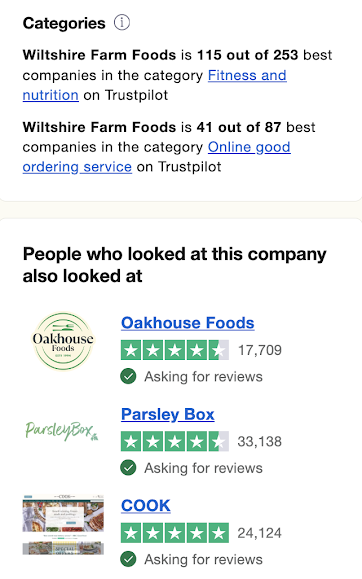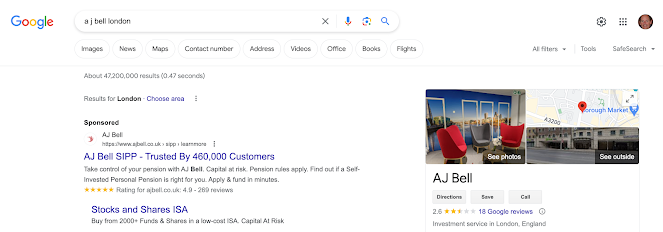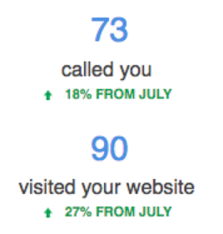Google reviews are available in inverse proportion to their need. There are 100 times more Google reviews of any McDonald's than there are of lawyers or financial advisers, and many more of those than there are of medical specialists. Why is this the case? There are two main reasons...
- More people use fast food outlets than GPs or lawyers
- The professions, and service businesses in general, are extremely wary of Google reviews - for good reasons (see 'moderation' below)
Note: All of the following discount 'personal recommendation'. Of course, we all welcome and take note of personal recommendations, especially for categories 0 - 4. But the further up our scale we go, the less likely any individual or business is to know someone well-qualified to recommend such a business. Note we don't say 'impossible', but far less likely. This leaves the responsibility for getting Google reviews fairly and squarely in the hands of the '6 - 10' businesses:professions and services in the main.
0 - 1
Entertainment
Few people read reviews of venues. If your favourite actor/band/play is on at the ABC Theatre that's where you're going. Reviews of the venue may warn you that the queue for the toilet at the interval is horrendous or that the refreshments are overpriced but you will still attend. We do read reviews of performances - but not Google reviews!
Retail
We want it? We buy it. Savvy retailers will use product reviews to add/drop lines - when did you last see a 1* toaster for sale on John Lewis's website?
Well-known services
McDonald's? Boots the Chemist? RyanAir? Reviews are written - by unhappy customers in the main, but will that stop most of us from using them? Will we even read their reviews?
2 - 3
Hotels and Restaurants - hospitality
Most consumers now use a specialist site when booking hospitality - and, to make doubly sure, the sites dominate search by block-booking Google ads (note - of all the links in Booking.com's site that could have been served, it's 'Top Reviewed Hotels' that gets the nod)...
The one sector where specialist websites win hands down. Of course, a good Google rating helps, but TripAdvisor, Expedia, Booking.com and the like are so well-established (and funded) that it is a secondary consideration.
6-9
Business services
As the consumer's need for them rises, the number of Google reviews dwindles dramatically...
Accountancy, recruitment, advertising, PR, marketing, web design, SEO, review management (!). All of these are a minefield, especially for SMEs. Why 'especially SMEs'? Because large businesses often have in-house capability, at least enough to be able to judge a specialist service - for example: a CFO of a large business will invariably have accountancy training and qualifications, so will be better placed to make an informed choice of an accountancy service; an SME director, almost always an entrepreneur, will seek out as much independent reassurance as possible. If your business is targeting the SME market, it needs to find an effective, and safe, way to engage with Google reviews.
Education
This is an interesting one. There is a huge amount of information available about educational establishments from preschools all the way up to universities and beyond. But with pastoral care increasingly in the headlines these days, parents, especially, are looking for added reassurance - outside of their own social circle (When did you ever hear a friend say 'I chose XYZ school for my little Jimmy and it's rubbish'?!). Very few schools indeed - if any - have yet to find a safe way to proactively engage with Google reviews. Prospective parents and guardians, as well as other stakeholders, need those educational establishments to find a way to engage.
Legal
Heard the term 'A legal minefield'? Of course you have, and it sums up the quandary facing anyone about to engage with the profession. There is a huge discrepancy in both areas of expertise - will the solicitor that conveyances your house purchase have the expertise to manage your divorce? - and quality of advice.
Those seeking legal advice will seek out Google reviews for reassurance. But is that law firm finding a complaint way to engage with Google reviews?
Financial
Financial advice, investment management, banking and insurance. Financial institutions spend fortunes promoting the value they supposedly add for consumers, whatever their specialism. The only true benchmark is past performance combined with Google reviews - and my, do they seem to do everything they can to ensure the bare minimum of Google reviews are written. Here is arguably the UK's largest retail fund manager, in the news this week...
And, to be fair, it's not alone in not engaging with Google reviews...
10
Medical and healthcare
GPs, specialists from ENT to oncology, hospitals, and nursing homes. Here we are often dealing not only with the person involved but with relations as well. Reviews - Google reviews - will be actively sought out and read. We stress 'read' because in the 1-6 categories a Google score will often be all the reassurance someone needs before contacting the business; in the case of medical and financial businesses, the reviews themselves are far more likely to be read.
The reason they all send you so many requests for reviews - either directly to them or to an otherwise obscure site, but almost never to Google, is because they - and/or their advisors - understand that a negative opinion will do far less harm on a specialist review site than on Google. It's a purely defensive measure. But it doesn't help those seeking out the right practitioner at all.
A shining beacon
There is one sector that has embraced Google reviews like no other, and we wonder if you can guess from the following clues which it is...
- The average transaction - across the whole of the UK - is just shy of £300,000
- The average revenue to the business - per transaction - is £4,000
- It is one of the top 10 'Least trusted occupations' in the UK, after politicians and press!
And in local search...
This, understandably, lit a fire across the entire profession when their competitors realised the power of Google reviews to drive business through their doors, so a search now looks like this...
We have examples of other high-value and sensitive sectors as well. For anyone thinking, quite understandably, that 'my clients/patients won't want to write publicly visible reviews', just take a look at this client and take a minute to read their reviews...
Not a huge volume - but enough grateful patients to provide a very helpful impression have taken the trouble to post a review to the Clinic's own website and then on to Google
Conclusion
The most complex and demanding businesses - and the consumers that use them - need reviews far more than simple ones, by a huge factor. The only thing stopping them is a safety net to prevent unfair reputational damage, and it's called moderation. With moderation, the business can relax in the sure knowledge that the factually inaccurate, potentially misleading or just plain unfair reviews it might receive if it simply took the - unnecessary and unhelpful - risk and invited its customers to post a review directly to Google, will be highly unlikely to see the light of day.
We hope this encourages businesses in those '6 - 10' sectors to become proactive - to give their prospective clients/customers/patients the moderated reviews* they crave and you will see enquiries/clicks and inbounds surge - guaranteed.
*Note: alongside the safety features inherent in moderation there are other helpful 'side-effects'...
- The reviews posted through a moderated system tend, on average, to be longer and more detailed and, as a result, more helpful to readers - your prospective customers. Consumers also report that they are far more likely to be convinced to interact with a business having read a detailed review (see 'Results' below)
- Consumers that have posted a positive review of a business tend, on average, to be more likely to interact with that business on multiple occasions or remain as ongoing customers of the business they have reviewed
- Consumers are far less likely to post critical reviews of businesses when the review process is initiated by the business under review
Further reading
- Moderation - protecting both business and consumer from factually inaccurate or potentially misleading reviews
- Results - businesses with great Google scores and significant numbers of reviews commonly see rises in both enquiries (often in the 15 - 25% range) and the quality of the resultant transaction








































